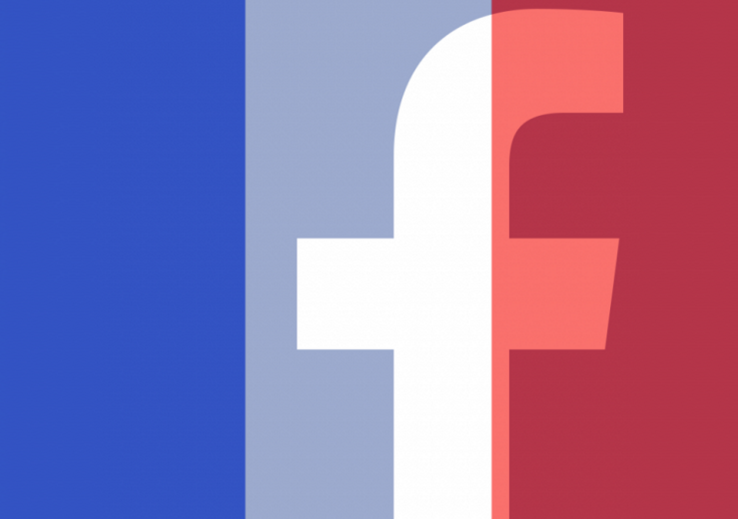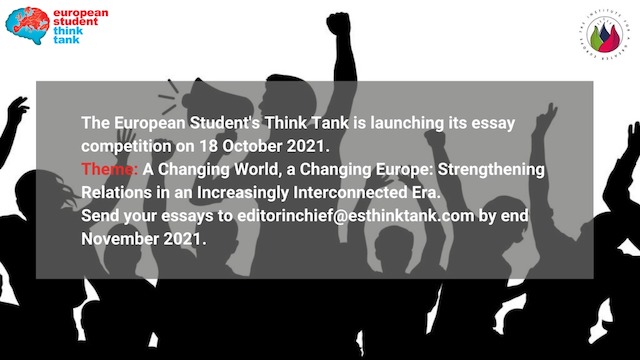
Elisa Schramm is a student of International Relations (Research) at the London School of Economics and Political Science and hold a bachelor’s degree from Sciences Po Paris.
As early as the evacuation of the stadium, the spectators of the Franco-German friendly match were starting to sing the Marseillaise. Soon after, Facebook statuses were multiplying. “Liberté, égalité, fraternité. Now more than ever”, writes one of my French acquaintances on Facebook. “ A thought to all my colleagues, to all families, to all victims, to the loving people of France, keep your head high, don’t lower your weapons: Courage, Force, Honour”, writes another. Someone reposts an Instagram picture saying: “we love wine. We love terraces. We love mini-skirts, we love music, art, culture, beauty. We are a secular/ non-religious republic. We are French. We are free. Deal with it! #notafraid”. Someone else comments: “it’s about France, and the French that we are talking. Therefore think French when you write in our beautiful language’. My newsfeed virtually turned bleu-blanc-rouge overnight.
This is just a small amalgamation of the many reactions in the immediate aftermath of the Paris attacks. What is surprising to me is how overtly patriotic the reaction in many cases is. The French, somehow, (they are not alone, think of John Oliver’s flattery of French lifestyle) made this about themselves, about their lifestyle. The French flag as a profile photo clearly won over the Eiffel tower/peace symbol and other symbols of grief. While clearly demonstrating solidarity, it seems to miss the key point: shouldn’t the message really be about peace, and less about the nation, less possibly with the fanaticism any kind of excessive convictions can entail? Already ‘je suis Charlie’ was somewhat self-indulgent and inward-looking, but especially compared to the amazing gesture of #Illridewithyou in Australia, that was directly concerned with minimising hatred against others, the national response epitomised by the French flag symbolically excluded all others not belonging to this national body. Unsurprisingly, some French Muslims have found themselves attacked in the last few days.
All of this begs for the question: How much really was this about France, and especially how much was this about the French lifestyle? Of course, there are reasons one can rather easily ascribe to why it was France that was attacked, ranging from the very active role France plays in fighting Daesh in Syria to the strict separation of religion and state France practices (la laicité). This latter element has hardly been mentioned, but systematically serves as an instrument of the far-right to marginalise Muslims, whether it is about halal-meat or veiled women and can only be a cause of resentment. Laicité in a country with only 5% regular church-goers also stands, as Charlie Hebdo duly noted, in complete opposition with “Prayers for Paris”.
Yet somehow, the attacks have been made about the way ‘we’ live, and it is this element that has so prominently figured over the social media. There has been a vigorous defence of our ‘mode de vie’, defiance in the face of the evil, barbaric other that Daesh now is. Everybody now seems to think that it is French culture in particular that has been under attack. This stands in contrast to the actual places that were under attack: a French-German match, a Cambodian restaurant, a formerly Jewish-owned club with an American band performing, a few French brasseries. In sum, it smacks more of multiculturalism and generalised big city buzz than of French distinctiveness. The victims were not exclusively French either.
I doubt very much that a French lifestyle was a sufficient cause for these attacks. Still, I find it disturbing how vigorous this defence of a French ‘way of living’ was, and how in the face of a common enemy, everyone seemed united. Hardly doubting or questioning anymore if all of what we are defending is actually worth it, if all the West is doing is actually right. But it serves to draw easy lines between good and bad, between innocent French people just enjoying their lives and the evil Islamists, cutting lives short.
It also feeds into France’s endless identity problem. It has long been common to strengthen the internal unity of a country in the face of a common enemy, negatively defining oneself against the other; think of the German reunification of 1871 where the French served as a source of negative identification to forge North and South Germany together. Now French civilisation stands opposed to the barbarism of Daesh. Even the archbishop of Paris, André could not resist calling Daesh ‘barbaric’. It is noteworthy how much this language of civilisation and barbarism has reappeared, after having been eschewed for so long as the language of colonisation, imperialism as well as racial and cultural superiority. The lines between good and evil are clearer than ever.
More importantly, it makes France important and ‘grand’ again. In the debate whether or not France is a ‘grande nation’, once again, without hesitation, can one answer in the affirmative. Out of all Western countries, France and its special and hedonistic lifestyle has been singled out for attack, not once, but twice, it absolutely matters in the world again what France does. The counterattack on Raqqa on Sunday was exactly that: a retaliatory act, an act of vengeance.
But all this lifestyle debate displaces the real issues at hand, the ‘reasons’ for the attacks, which is problematic and hypocritical. First and foremost, even though the Paris attacks were obviously particularly cruel and constituted the deadliest attack on European soil since the Madrid attacks of 2004, it is part of a series of attacks against countries fighting against Daesh. Many were those who publicly deplored Western hypocrisy for missing out the Beirut attacks, seemed to have missed the link between those attacks. Nor did anyone bother to ‘pray for Russia’ or ‘pray for Ankara’, similar in deadliness to the Paris attacks, also orchestrated by Daesh. Only Egypt bothered to project the Russian flag next to the Lebanese and French one on the Pyramid of Giseh. Leaving aside the Ankara attacks, because it happened a while ago, what does this complete disregard for the Russian plane crash of just two weeks ago tell us about our visions of self and other? Did we not care about Russian victims, because it was ‘evil’ and supported Assad? Will we start to care now, now that they are fighting with us? So much for the hypocrisy of people criticising Western hypocrisy ignoring Lebanon.
I am not saying that all this unity is necessarily bad or that ‘we’ shouldn’t defend ourselves. Only, a little self-awareness wouldn’t hurt. And let a message of peace, of love and of hope, even in the face of hatred, prevail. As hippie as it sounds.
This piece expresses the opinions of the author only and does not necessarily reflect the position of the European Student Think Tank

 Strategic Saboteur: Hungary’s Entrenched Illiberalism and the Fracturing of EU Cohesion
Strategic Saboteur: Hungary’s Entrenched Illiberalism and the Fracturing of EU Cohesion  The invention of development: power, narrative, and the afterlife of Truman’s speech
The invention of development: power, narrative, and the afterlife of Truman’s speech  Is the World Trade Organisation a Failure?
Is the World Trade Organisation a Failure?  Is EU citizenship for sale – or for keeps? A critical analysis of the CJEU’s Golden Visa ruling.
Is EU citizenship for sale – or for keeps? A critical analysis of the CJEU’s Golden Visa ruling. 